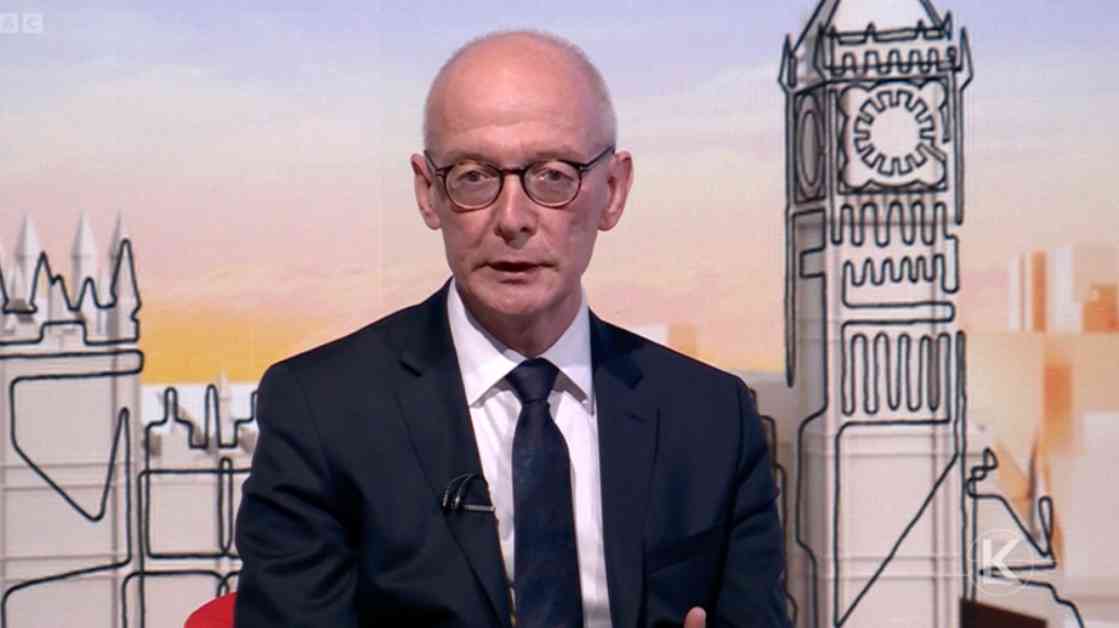Sir Keir Starmer, the Prime Minister of the United Kingdom, has recently come under fire for accusations of “sleaze, nepotism, and avarice” within his government. In response to these allegations, Starmer has announced stricter rules on gifts and donations in an effort to regain public trust and integrity in his administration.
The controversy surrounding Starmer and his government stems from reports of accepting thousands of pounds worth of freebies from corporate sponsors and millionaire donors. This scandal has significantly impacted the party’s standing in the polls, prompting Starmer to take decisive action to address the issue.
Pat McFadden, the Chancellor of the Duchy of Lancaster, who oversees the Cabinet Office, which is considered the “engine room” of Whitehall, announced the new rules on gift and donation declarations. The goal is to tighten regulations for ministers and ensure transparency in their dealings.
McFadden criticized the current rules as a “Tory loophole” designed to protect previous Conservative ministers. The changes come at a crucial time for Starmer’s government, as various events have unfolded in the political landscape:
Canterbury MP Rosie Duffield’s resignation from the Labour Party, citing concerns of “sleaze, nepotism, and apparent avarice” within the government. She also accused Starmer of having a “woman problem,” further adding fuel to the fire of discontent within the party.
McFadden also addressed the issue of donations, dismissing claims of £16,000 in donations for Starmer’s clothes and £32,000 for ministers and their spouses as mere “campaign expenses.” This move aims to clarify and regulate the declaration of gifts and donations to ensure accountability.
Additionally, loyalist Labour parliamentarians launched a coordinated attack on what they perceive as a “right-wing conspiracy” against Starmer. The internal strife within the party has led to growing concerns about the effectiveness of the opposition and the leadership’s ability to navigate these challenges.
As the Tories opened their conference in Birmingham, senior figures within the party expressed deep concerns about the lack of meaningful opposition from Labour. The ongoing leadership contest within the Conservative Party has also raised questions about the political landscape and the role of the opposition in holding the government to account.
The issue of transparency and accountability in political leadership has taken center stage, with Transparency International UK welcoming the government’s proposal to change the rules on gift declarations. This move is seen as a step towards restoring public trust and confidence in the political system.
Rosie Duffield’s decision to resign from the Labour Party and sit as an Independent MP reflects the growing discontent within the party ranks. Her criticism of Starmer’s leadership and the perceived lack of engagement with backbench MPs underscores the internal challenges facing the party.
In response to Duffield’s departure, Labour MPs and peers have rallied to defend Starmer against the accusations of sleaze and nepotism. The party’s efforts to maintain unity and cohesion amidst the turmoil highlight the complexities of navigating internal dissent and external scrutiny.
The ongoing debate over the role of transparency in political leadership has sparked a broader conversation about accountability and integrity in government. The public’s expectations for ethical governance and responsible decision-making are at the forefront of the political discourse.
As the political landscape continues to evolve, the need for clear rules and regulations on gifts and donations becomes increasingly important. The government’s commitment to transparency and accountability is essential in rebuilding public trust and confidence in the political system.
Overall, the implementation of stricter rules on gifts and donations is a significant step towards addressing the allegations of “sleaze, nepotism, and avarice” within the government. By promoting transparency and accountability in political leadership, Sir Keir Starmer aims to uphold the principles of integrity and ethical governance in the UK.












